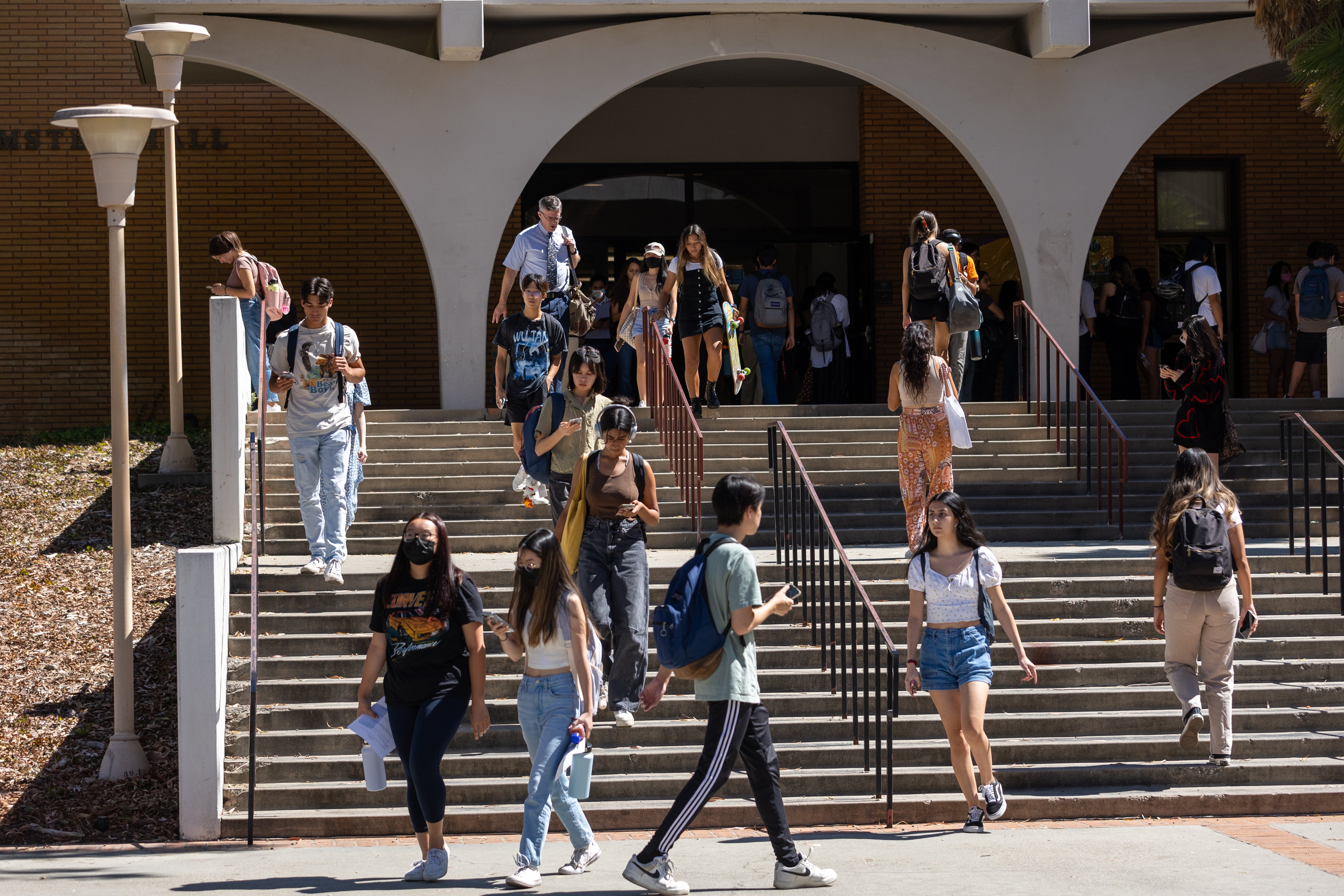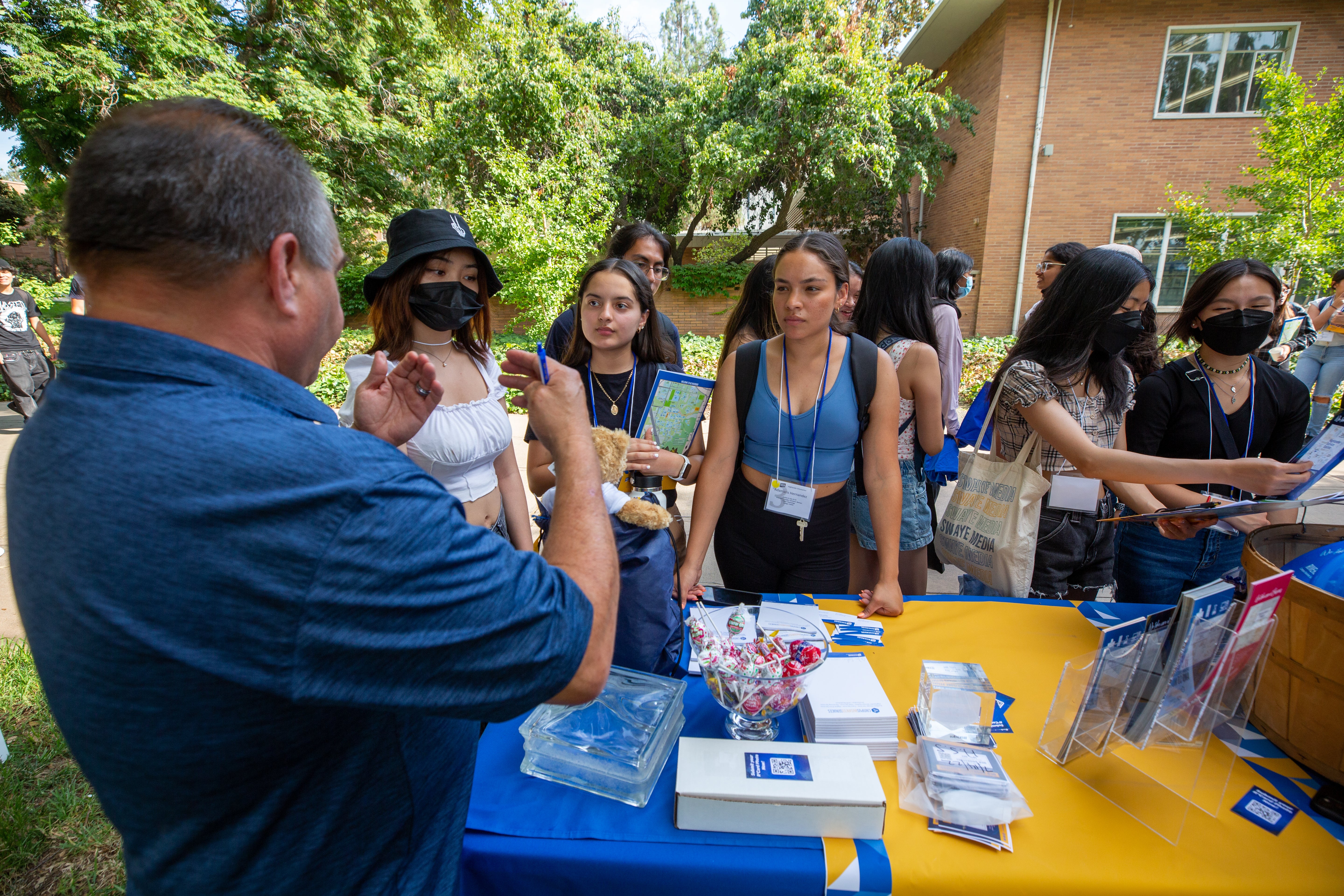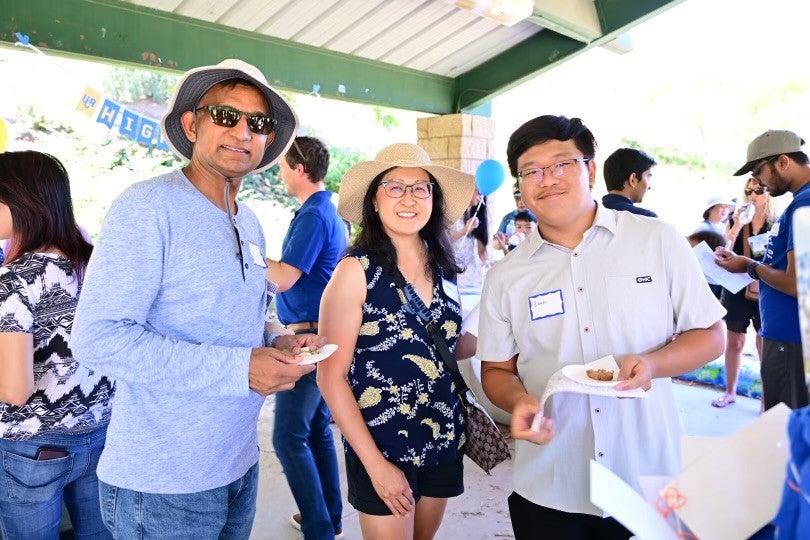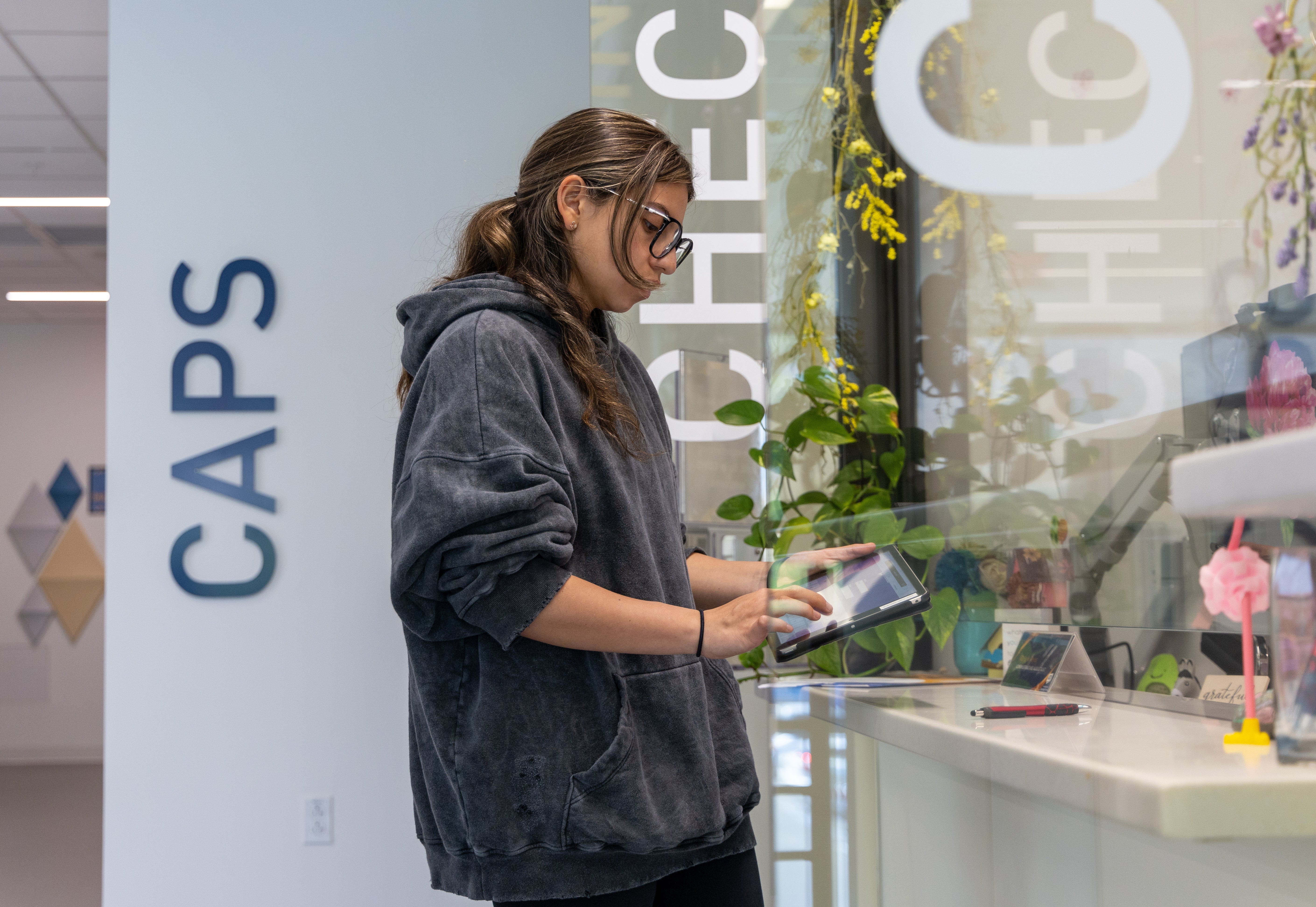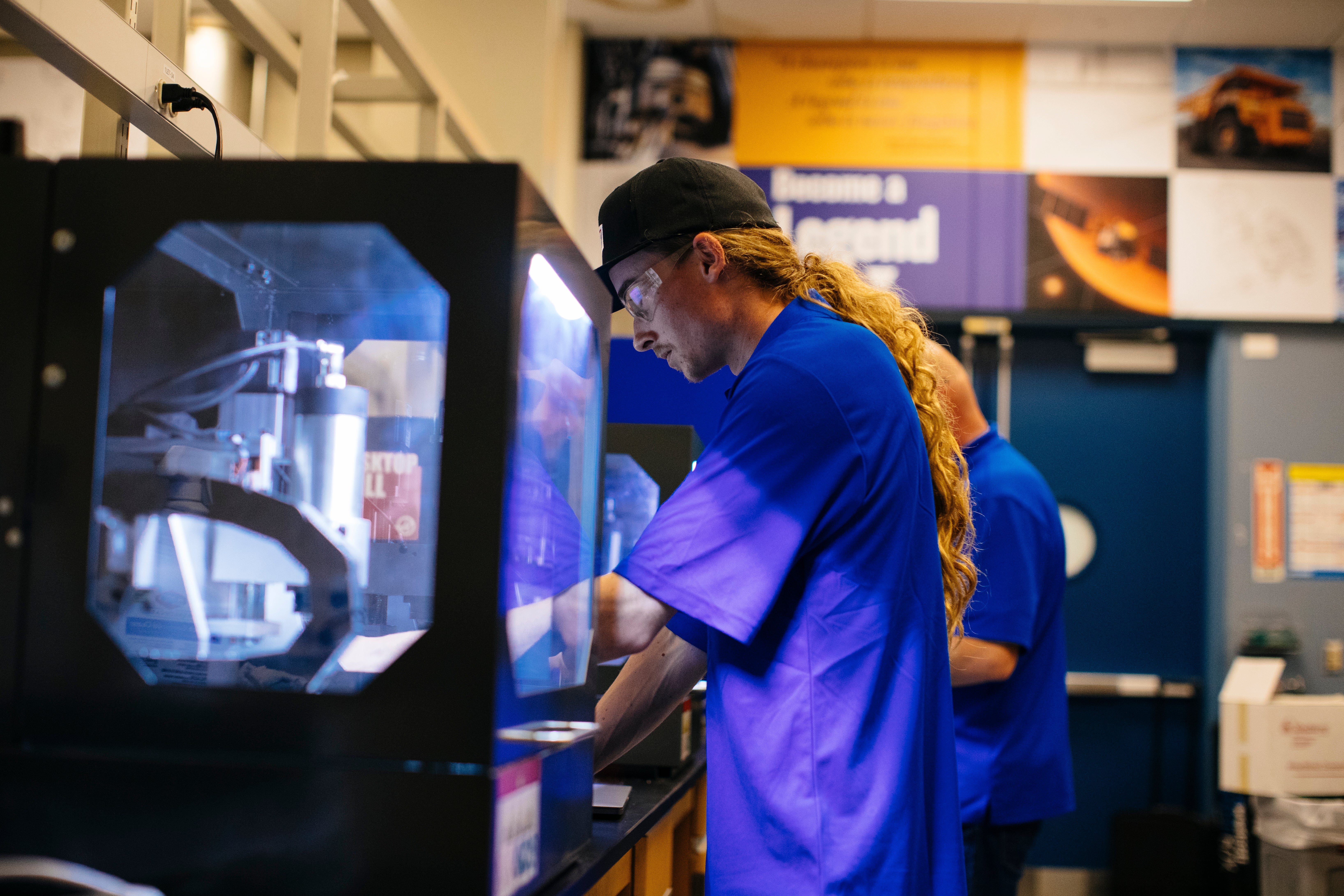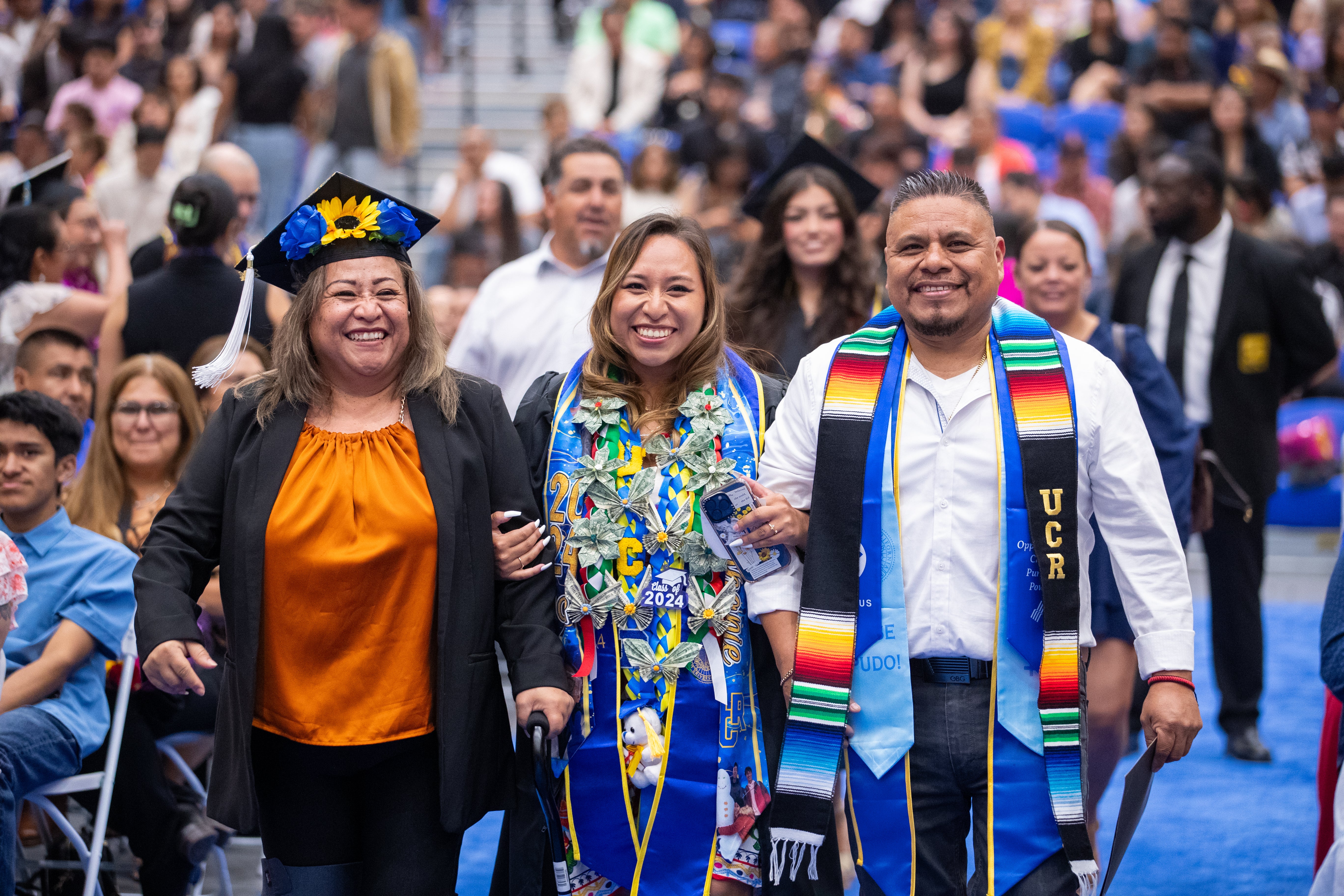Get Started
The Highlander Family Network is dedicated to helping families support their students while they are here on campus, from First Year Orientation all the way to Commencement. Each year at university is different, and students tend to need a varied level of support depending on whether they’re a first year, second year, and so on.
Know that while your student is here, they’re in great hands and have amazing access to professional development, personal wellness, and academic support.
Take a look at the resources we’ve curated for you and reach out if you have any questions!
Prospective Families
Interested in getting to know more about UCR? Check out the following resources to start the process of becoming a Highlander!
- Campus Tours
Sign up for a campus tour and come see our beautiful campus. While here, make sure you grab a bite to eat in the HUB or a coffee from one of our many cafes.Don’t forget to snap a picture at the Belltower and with Scotty while you’re here! -
Admissions
Undergraduate admissions has everything you need to know about our university including statistics and rankings, application and acceptance deadlines, and everything in between. -
Admitted Students Must SIR
Welcome to the Highlander family! We can’t wait to see you and welcome your student to campus. Make sure your first-year student signs their Student’s Intent to Register (SIR) by May 1. Transfer students need to sign their Student's Intent to Register (SIR) by June 1. - Orientation
To make the most out of your time at UCR, make sure you register to attend our summer registration and orientation days. This two-day (first year orientation) session has workshops designed specifically to help your student and the family transition into the UC Riverside family.
First Year
First-year, first-time college students undergo many transitions, one of which includes the transition from the high school to college lifestyle. For example, high school teachers are often available daily to assist students when needed, but in college, professors are available during office hours or by appointment, and it is up to the student to initiate a meeting according to the professor’s availability. A 2019 study also found that many incoming first years aren’t confident in their career path and as many as 60% are overwhelmed by selecting a major (Ellucian, 2019). Overall, students are looking for more support in many ways. Developing a peer group can also feel crucial to incoming students, especially on a large campus like UC Riverside. Our campus libraries have a variety of spaces to house small or larger study sessions and we have amazing support networks at the Academic Resource Center and through Student Life’s First Year Mentorship Program.
Share these tips with your student:
-
Open to See the Tips
Share these tips with your student:
- Get involved in the residence hall programming and activities, if living on-campus; and check in with your Resident Assistants (RA) for support and guidance.
- Check out one (or more) of our over 500 student organizations and become a member, befriend classmates, and form study groups. This is especially important for first-year commuter students.
- Get off-campus and get to know downtown Riverside. There’s a farmer’s market every Saturday!
- Go to a Highlander game ! Remember, students get in free!
- Find an on-campus job to begin building on professional skills and meet other members of the campus.
Second Year
Regularly referred to as the “sophomore slump” or the “forgotten year,” sophomore students are likely to disengage with their university (Freedman, 1956). Second-year students may face challenges associated with self-authorship. Self-authorship allows individuals to manage interpersonal relationships and expectations through self-selected values, beliefs, interests, and understandings of the self in the world (Kegan, 1994). The second year of college can be a time where students learn more about themselves, test assumptions about the world, gain energy, and acquire the ability to make decisions for themselves (Schaller, 2018). Fifty-seven percent of second-year students rely on external sources in their decision-making process, and 43% struggle to find their own voice (Magolda, 2009). UC Riverside provides students with holistic experiences to reflect on their personal, academic, and professional values.
Share these tips with your student:
-
Open to See the Tips
Share these tips with your student:
- Many of our colleges offer a page dedicated specifically to sophomore students. Check out the Career Center to get examples from CHASS and CNAS
- Talk with an academic advisor , student success coach, and/or academic internship program to explore and declare a major.
- Look into groups like the Student Alumni Association (SAA) who run development programming and mentorship programs all year long.
- It’s never too late to find opportunities to connect with a variety of people by joining one of our 500 student organizations.
- Go to a Highlander game ! Remember, students get in free!
Third Year
During the third year, most students transition from their lower division, or generalized requirements, to their upper division, or major requirements. More than half of students change their major at least once, although Millennials tended to change their mind about 14% more than their Gen Z counterparts. (Ellucian, 2019). Reminding students that there are supports in place for them to feel successful is a powerful way to keep them grounded and on track for commencement. UC Riverside has a thriving alumni network, career center, and academic resource center that can help them prepare for post-college life. In terms of factors influencing their career decisions, [young adults] (80%) said they would prefer "advice from professional who work in a chosen field," compared to "advice from parents or other family members" (75%), "advice from academic counselors or advisors" (67%), "information from TV, social media or online" (41%), or "advice from friends" (38%) (Junior Achievement USA, The Hartford, 2018).
Share these tips with your student:
-
Open to See the Tips
Share these tips with your student:
- Talk with an academic advisor , student success coach, and/or academic internship program to continue in your major or to make any changes as soon as possible, and to make sure you’re on track to graduate on time.
- Look into groups like the Student Alumni Association (SAA) , the First Generation Mentor Program , the Chicano Link Peer Mentor Program, the Society of Women Engineers, and African Student Programs who all run development programming and mentorship programming all year long.
- It’s never too late to find opportunities to connect with a variety of people by joining one of our 500 student organizations .
- Make an appointment at the Career Center for career advising or interview practices.
Fourth Year
Supporting your fourth-year student can look very different depending on their academic path. If their plan is to graduate and enter the workforce, there can be a lot of pressure to immediately line up a job. The fact is that approximately 53% of college graduates are unemployed or working in a job that doesn't require a bachelor's degree. It takes the average college graduate three to six months to secure employment after graduation (University of Washington, 2021). And while this process can be daunting, crossing the finish line is a rewarding experience for everyone. 79% of graduates in a 2021 study said that their college education was extremely or very useful to them in terms of personal and intellectual growth, and 70% said it opened doors to job opportunities. Furthermore, 65% of graduates said that their education helped them to develop specific skills and knowledge that could be used in the workplace (Pew Research, 2021).
Share these tips with your student:
-
Open to See the Tips
Share these tips with your student:
- Talk with an academic advisor , student success coach, and/or academic internship program to continue in your major or to make any changes as soon as possible, and to make sure you’re on track to graduate on time.
- Look into groups like the Student Alumni Association (SAA) , the First Generation Mentor Program , the Chicano Link Peer Mentor Program, the Society of Women Engineers, and African Student Programs who all run development programming and mentorship programming all year long.
- It’s never too late to find opportunities to connect with a variety of people by joining one of our 500 student organizations .
- Make an appointment at the Career Center for career advising or interview practices.
- Prepare for fun senior events like Senior Send Off!
- Learn more about Commencement by getting information on dates, times, tickets, etc.
